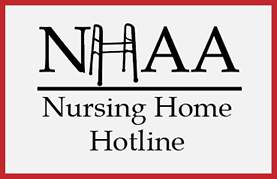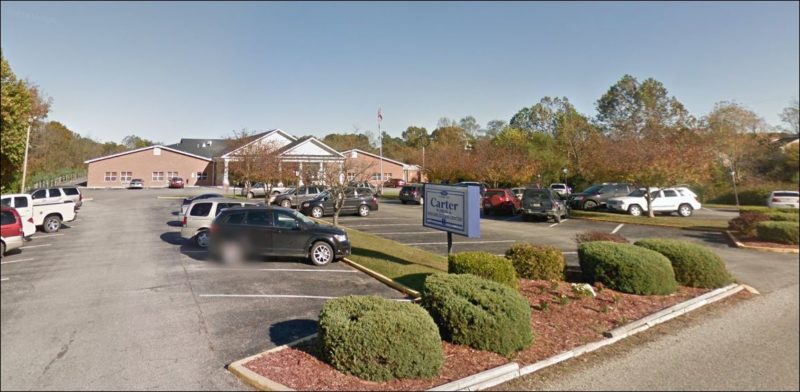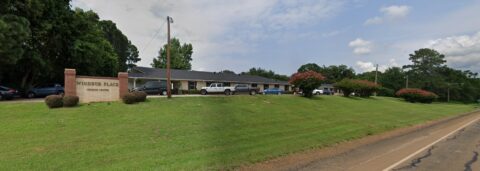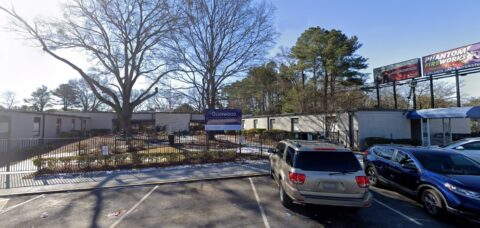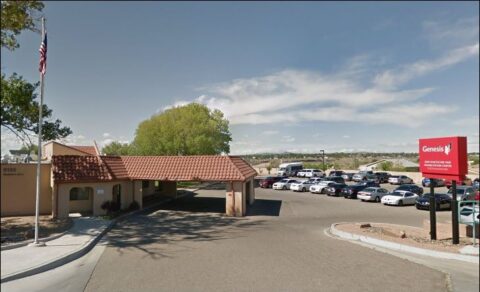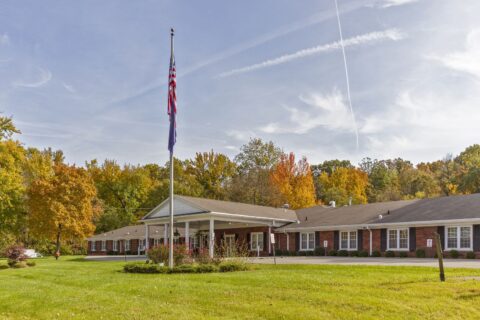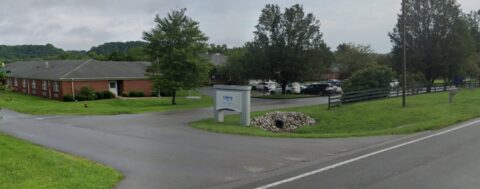State Findings:
Based on observation, interview, record review, review of the facility’s Policy, and review of the facility’s Investigation, it was determined the facility failed to have an effective system to ensure each resident received adequate supervision, monitoring, and assistive devices to prevent elopement for one (1) of twelve (12) sampled residents (Resident #6).
On 05/14/19 at 10:18 AM, Resident #6 exited the front lobby door of the building in his/her wheelchair and was immediately redirected and assisted back inside by staff. After this incident, the facility assessed the resident as an elopement risk and a physician’s orders [REDACTED].
On 05/18/19 at 7:13 AM, Resident #6 again exited the front lobby door, this time self-ambulating while pushing his/her wheelchair. Staff were alerted by the door alarm set off by the resident’s code alert and assisted Resident #6 back inside.
On 05/19/19, a physician’s orders [REDACTED]. Resident #6 exited the front lobby door on 05/23/19 at 8:52 AM; 05/24/19 at 9:33 AM; 05/27/19 at 10:50; and 05/27/19 at 11:23 PM, unsupervised. At the time of each incident, the code alert bracelet the resident wore on his/her ankle would set off the door alarm and staff would bring the resident back inside or ensure the resident was supervised while sitting outside.
Staff interviews revealed Resident #6 would spend most of his/her time in the front lobby with personal possessions bagged up in his/her wheelchair. When asked what he/she was doing, the resident would reply he/she was waiting on a bus, or waiting for someone to come pick him/her up, and staff were often unable to redirect the resident away from the front lobby. Resident #6 asked staff to remove his/her code alert bracelet, made comments regarding needing scissors to remove it himself/herself, and compared the facility to a prison due to restrictions as a result of the code alert bracelet. However, this was not documented.
There was no documented evidence the facility modified interventions after Resident #6’s statements related to the desire to remove the code alert bracelet and there was no documented evidence the facility increased supervision and monitoring to protect the resident from elopement.
On 06/15/19 at 9:30 PM, staff documented visual check of Resident #6’s code alert bracelet to his/her left ankle. On 06/16/19, staff observed Resident #6 in his/her room in bed at approximately 4:30 AM.
On 06/16/19, between 4:30 AM and 5:30 AM, Resident #6 exited the facility through the front lobby doors without staff’s knowledge. According to staff, they did not hear an alarm sound.
At approximately 5:30 AM on 06/16/19, staff received a call from a Neighbor, two-tenths (0.2) of a mile from the facility notifying the facility that Resident #6 was outside and was wearing shoes, socks, a pull over gown, and carrying a purse. Facility staff responded, assisted Resident #6 back to the facility at approximately 5:40 AM, and assessed the resident as having no injuries.
The facility’s investigation revealed the resident was not wearing a code alert bracelet during the elopement. Review of the local weather history revealed the temperature was approximately sixty-seven (67F) degrees Fahrenheit, and sunrise was at approximately 6:07 AM, revealing the resident had been outside unsupervised in the dark. (Refer to F-657)
The facility’s failure to have an effective system in place to ensure each resident receives adequate supervision to prevent elopement caused or is likely to cause serious injury, harm, impairment or death to a resident. Immediate Jeopardy (IJ) and Substandard Quality of Care (SQC) was identified on 06/20/19 and was determined to exist on 06/16/19. The facility provided an acceptable credible Allegation of Compliance (AoC) on 07/02/19, alleging removal of the Immediate Jeopardy on 06/18/19. The State Survey Agency validated removal of the immediate Jeopardy as alleged on 06/18/19, prior to exit on 07/03/19, with remaining non-compliance at a Scope and Severity of a D while the facility develops and implements a Plan of Correction and the facility’s Quality Assurance (QA) monitors to ensure compliance with systemic changes.
Your Experience Matters
...and we want to hear it.
NHAA is here to assist families, residents, and the community by sounding the alarm on issues like those found above. This nursing home and many others across the country are cited for abuse and neglect.
If you have or had a loved one living in this nursing home or any other nursing home where you suspect any form of abuse or neglect, contact us immediately.
We have helped many already and we can help you and your loved one as well by filing a state complaint, hiring a specialized nursing home attorney or helping you find a more suitable location for your loved one.
You can make a difference, even if your loved one has already passed away.
Please give us a call at 1-800-645-5262 or fill out our form detailing your experience.
Personal Note from NHA-Advocates
NHAA shares with all the families of loved ones who are confined to nursing homes the pain and anguish of putting them in the care of someone else. We expect our loved ones to be treated with dignity and honor in the homes we place them. We cannot emphasize enough to family members of nursing home residents; frequent visits are essential to our loved ones’ well-being and safety.
If you are struggling and upset, click here to understand your options, or contact us through our contact form or call our toll free hot line number: 1-800-645-5262.
